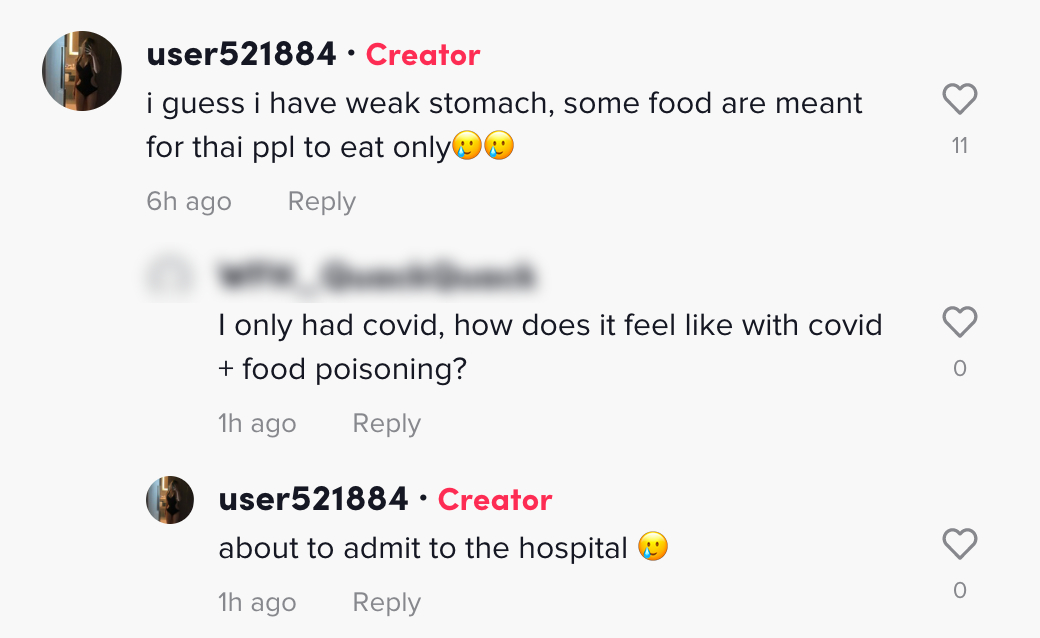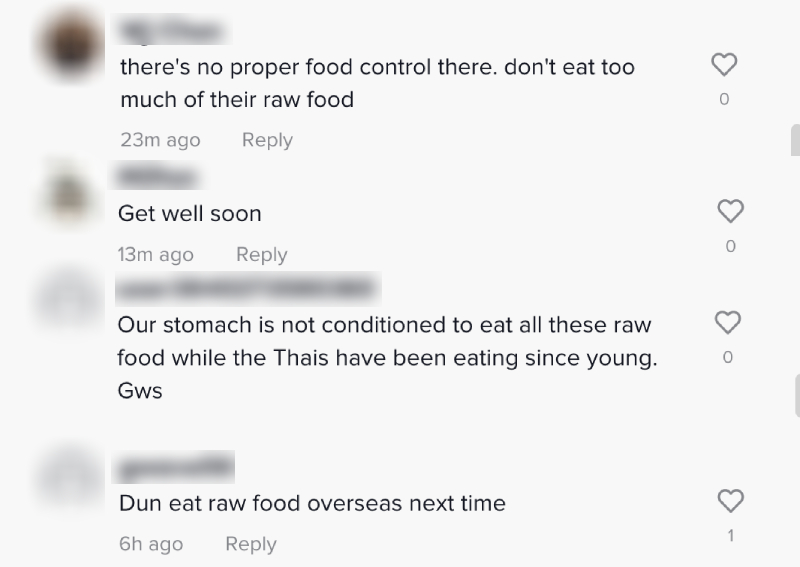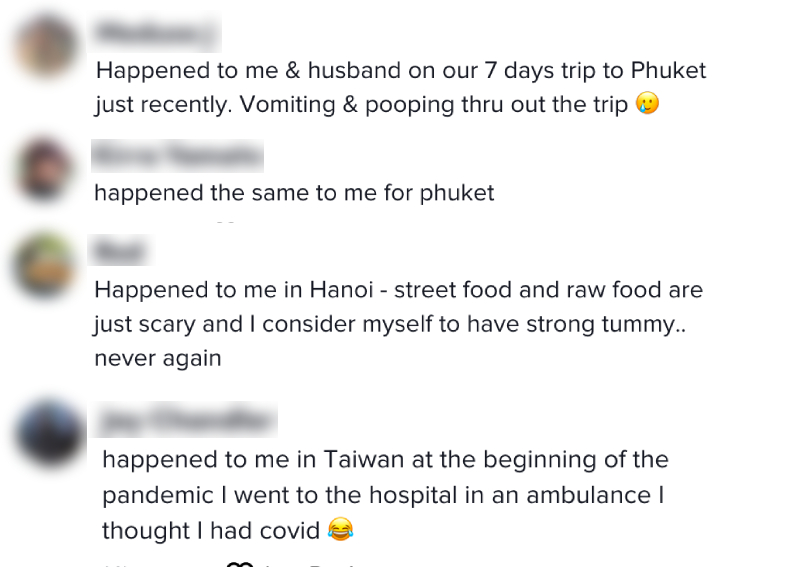Dancing prawns, oysters in Phuket leave Singaporeans kneeling before the porcelain throne


 PUBLISHED ONAugust 22, 2022 10:55 AMByClaudia Tan
PUBLISHED ONAugust 22, 2022 10:55 AMByClaudia TanOne of the best parts about traveling overseas is trying new types of food.
Unfortunately, these Singaporeans might have been a little too adventurous during their recent holidays to Phuket, and wound up separately with food poisoning.
One woman, who goes by User818391963 on TikTok, uploaded a video documenting her mishap on Sunday (Aug 21).
During her six-day trip to Phuket, she posted that she visited Chillva Night Market and ate some 'dancing shrimp' — a street dish consisting of fresh live shrimp marinated in spicy sauce and herbs.
In her video, the woman also included a selfie she took while she was happily eating the raw shrimp, along with the caption "live shrimp [not] bad".
Unfortunately for her and her travel companion, that Thai delicacy did not sit well with them.
"The night after, we started vomiting continuously for six hours [and had] diarrhoea non-stop," User818391963 wrote in her video.
As if their situation couldn't get any worse, the pair also found out they both tested positive for Covid-19.
Talk about a double whammy.
"I guess I have [a] weak stomach, some food [is] meant for Thai people to eat only," she wrote in a comment.
On Monday, she added in another comment that she was "about to [be admitted] to the hospital".

There were also several netizens who sent her well-wishes and urged her to be careful when dining overseas.
"Our stomach[s] [are] not conditioned to eat all these raw food[s]," said one netizen.

It seems that User818391963 and her friend weren't the only Singaporeans suffering in Phuket.
Another TikTok user, who goes by the username Blooppbloop0, was coincidentally also on a six-day trip there.
After having some raw oysters, Blooppbloop0 wrote in her video uploaded on Saturday that she "vomited for one and a half days straight".
A doctor also visited her in her hotel room and gave her "injections for four types of [medications]", she posted.
The ordeal cost her a total of 9,000 baht (S$348).
Interestingly, several netizens commented on Blooppbloop0's video saying that they too had food poisoning after consuming raw seafood overseas.

AsiaOne has reached out to User818391963 and Blooppbloop0 for comment.
To minimise the risk of getting food poisoning while on holiday, some tips include choosing thoroughly cooked food, sticking to boiled water or bottled drinks, as well as avoiding unpasteurised dairy products such as milk and cheese.
Travellers can also consider packing anti-sickness medication, oral rehydration salts, anti-diarrhoea medication and antibiotics to self-medicate in the event of food poisoning.
Although the symptoms of food poisoning can be managed with these medications, it's advisable to seek medical attention if the symptoms persist for 24 to 36 hours despite self-treatment, or if there is blood or pus in the stool or vomit, coupled with persistent fever above 380C and severe abdominal pain.
ALSO READ: How much will food poisoning cost you?
For more original AsiaOne articles, visit here.